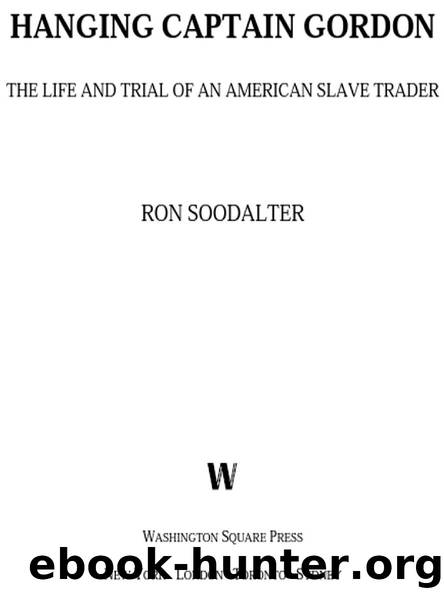Hanging Captain Gordon by Ron Soodalter

Author:Ron Soodalter
Language: eng
Format: epub
Publisher: WASHINGTON SQUARE PRESS
Published: 2007-07-15T00:00:00+00:00
The list of supplicants who visited Lincoln included the librarian of Congress, the president of the Baltimore & Ohio Railroad, the governor of Massachusetts, former postmaster general Montgomery Blair, and Beall’s sister. Confederate brigadier general Roger Pryor, freshly released from Fort Lafayette military prison, visited Lincoln to plead for Beall’s life. After listening respectfully to all that Pryor said, Lincoln showed him a telegram from Union general John Dix, who had overseen Beall’s trial and imprisonment, stating that the prisoner’s execution was vital for the “security of the community.” There had been a recent unsuccessful attempt by Confederate saboteurs to burn New York City, and Dix was convinced that Beall was involved, though there was no evidence to support this suspicion, nor was this the crime for which Beall stood accused and convicted.
On the morning of Beall’s scheduled execution on Governors Island off New York City, the young prisoner received his mother and various friends and clergymen. He asked to have his picture taken; the photograph shows a handsome, serene-appearing young man with strong features and a neatly trimmed goatee, dressed more for a dance than an execution. Marshal Murray then entered Beall’s cell in company with the executioner. Beall stood, saying that he was at their service, and commented, “It is only a question of muscular power; I think I can bear it.” He was bound and escorted to the gallows. Looking at the sky, Beall said, “The sun shines brightly; I now see it for the last time.” Marshal Murray asked Beall if he had anything to say, to which he replied, “I protest against the execution of this sentence. It is absolute murder—brutal murder. I die in the defense and service of my country.”
Just before the cap was drawn over the young man’s face, Murray again asked if he had any final words. Beall answered, “No. I beg you to make haste.” The signal was given, and Captain Beall was hanged. “His fortitude and courageous bearing were commended even by his enemies.” 21 Shortly after Beall’s execution, the outraged editor of the Richmond Enquirer wrote, “True to their cowardly instincts, the Yankees carried out their mad purpose of hanging Captain Beall on last Friday. The Yankees, it will be recollected, trumped up the charge against him of being a ‘spy and guerilla,’ but the truth is, he was merely a prisoner of war.”
The president was deeply affected by Beall’s execution. The day the young officer was hanged, Lincoln sank into a depression, and his sadness lingered for some time. A full month after the event, when his friend Illinois lawyer and Republican congressman Henry Bromwell visited the White House, Lincoln complained of the constant pressure to pardon or reprieve men. He spoke of the unending line of petitioners:
It seems to me they will wear the very life out of me; but then all these other matters are nothing to these cases of life and death—and there are so many of them, and they all fall on me.
Download
This site does not store any files on its server. We only index and link to content provided by other sites. Please contact the content providers to delete copyright contents if any and email us, we'll remove relevant links or contents immediately.
| General | Discrimination & Racism |
Nudge - Improving Decisions about Health, Wealth, and Happiness by Thaler Sunstein(7707)
The Fire Next Time by James Baldwin(5446)
iGen by Jean M. Twenge(5416)
Adulting by Kelly Williams Brown(4574)
The Sports Rules Book by Human Kinetics(4388)
The Hacking of the American Mind by Robert H. Lustig(4383)
The Ethical Slut by Janet W. Hardy(4253)
Captivate by Vanessa Van Edwards(3840)
Mummy Knew by Lisa James(3693)
In a Sunburned Country by Bill Bryson(3542)
The Worm at the Core by Sheldon Solomon(3487)
Ants Among Elephants by Sujatha Gidla(3467)
The 48 laws of power by Robert Greene & Joost Elffers(3291)
Suicide: A Study in Sociology by Emile Durkheim(3023)
The Slow Fix: Solve Problems, Work Smarter, and Live Better In a World Addicted to Speed by Carl Honore(3009)
The Tipping Point by Malcolm Gladwell(2924)
Humans of New York by Brandon Stanton(2873)
Get What's Yours for Medicare: Maximize Your Coverage, Minimize Your Costs by Philip Moeller(2734)
Handbook of Forensic Sociology and Psychology by Stephen J. Morewitz & Mark L. Goldstein(2705)
